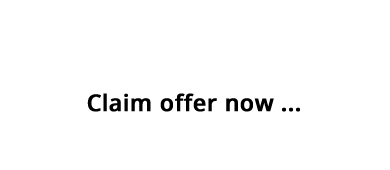SOVA E-Learning Courses
Pay monthly for all courses from just £0.40/user!
Our Safeguarding course includes all components below...
Safeguarding of Vulnerable Adults
What is meant by safeguardingIdentify the different types of abuse
How to deal with the disclosure of abuse and the process to follow
Safeguarding legislation
Identify the support available following disclosure
Safeguarding of Children
Forms of abuseIdentify signs of abuse
Behavioural changes
Process of reporting abuse
Support for the child
Reporting concerns and confidentiality
Duty of care
Ensuring the safety of the child
Safe practice & appropriate response
Laws and responsibilities
Safeguarding of vulnerable people FAQ
Safeguarding adults is about reducing or, ideally, preventing the risk of significant harm from abuse and exploitation, and simultaneously supporting people to take control of their own lives by making informed choices.
Safeguarding is defined in Working together to safeguard children 2013 as:
1) protecting children from maltreatment
2) preventing impairment of children's health and development
3) ensuring that children grow up in circumstances consistent with the provision of safe and effective care and
4) taking action to enable all children to have the best outcomes.
There is an assumption that abuse is physical in nature. The truth is that it can be caused in a number of ways. Different kinds of abuse include:
1) Physical Abuse: Any intentional use of physical force with the intent to control a partner through fear or injury
2) Emotional/Verbal Abuse: An attempt to control a partner through the manipulation of their self-esteem, sense of personal security, relationships with others, and/or their perception of reality. Often it results in the victim feeling worthless and responsible for the abuse
3) Sexual Abuse: Any behaviours that impact a person's ability to control their sexual activity or the circumstances in which sexual activity occurs
4) Digital Abuse: This is a form of emotional/verbal abuse that uses technology or social media to intimidate, harass, bully, stalk or threaten a current or ex-partner
5) Financial Abuse: The use of finances or access to finances to control a partner. It's one of the powerful forms of abuse, and common method of entrapping a partner in the relationship. It's often given as the reason that victims of abuser stayed in or returned to an abusive relationship
Pricing
Prices vary depending on how many courses you need. Please view our pricing structure to find the package that best suits your organisation.
You can gain instant access to all our courses with our small monthly subscription, or pay as you go and buy each course either independently or in bulk. Subscriptions start from as little as 40p per user per month!
Get the 1st Month FREE on
your subscription.
Gain immediate access to all areas of our CQC training platform
and enjoy unlimited care courses and unlimited users!
Gain immediate access to all areas of our CQC
training platform
and enjoy unlimited care courses and
unlimited users!

Get the 1st Month FREE on
your subscription.
Gain immediate access to all areas of our CQC training platform
and enjoy unlimited care courses and unlimited users!

Get the 1st Month FREE
on your subscription.
Gain immediate access to all areas of our CQC training platform
and enjoy unlimited care courses and unlimited users!

Accreditation
CPD Standards Office accreditation provides credibility to our online courses that just aren't available with other e-learning providers. Via evidence-based accreditation you are ensuring your organisations standards are high and consistent, as well as offering employees engaging and substantive learning with which to enrich their careers.
More information can be found on the CPD website.
Booking
Please call us to get a quote. Once your booking is confirmed, we will then send you your joining instructions! No downloads, no hassle. Just create a login and input the code we send you to start the course.
For larger organisations our portal can be rebranded to your requirements. For more information on this service, please contact us and we will be happy to help.
Assessment
After you have completed your assessment (including multiple choice questionnaire), your digital certificate is sent to the email address used to login as soon as the course is completed.
If you have not received your certificate, please first check your spam box. If it isn't there, please call and we will get this resent.
Do courses expire?
There is no expiry date on course credits. Once a credit has been bought it can be allocated at any time. However, should the credit have been allocated to the delegate, each learner then has 12 months to complete the course.
In other words, unallocated course credits have no expiry date. If for example you ordered 1000 licences, and allocated 600 courses in year 1, you would have 400 licences left to allocate in year 2.
Contact Us.



